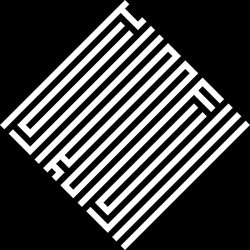 Yujiro Fujii
Yujiro Fujii Who is Yujiro Fujii? Affable and forthcoming, yet hidden from view. I encountered Yujiro on Twitter and his music mesmerized me. I had a ton of questions and his breezy generosity blew through the language barrier between us. I speak no Japanese, and he made a generous effort to communicate with me in English. Yet, while Yujiro is forthcoming, he also remains enigmatically hidden. My request for a photo yielded a mere logo, pictured at the left. I only want to know him all the more.
Who is Yujiro Fuji? Here are his own words.
"YUJIROFUJII [Japanese; born March 1, 1985] is a math minimal musician. He composes by only his voice recorded by $10 USB microphone. His compositions are mostly used odd meter and polyrhythm. Then, he is very very poor."
Yet resourceful. The moment I began to play his album, 1-10, I connected with how groovy and imaginative his music is. The first track begins to reveal the story with its title, "AAAAA." The album continues with, "EEEOEEEO," and so on. Yujiro records his own voice, turning vowel combinations into threads that he weaves into a colorful, dance electronica inspired fabric.
Boundaries engender freedom. This is a general rule in art. Stravinsky wrote in his Poetics of Music that creation begins, not with inspiration, but with speculation. As the artist responds with answers to his speculation, he connects with the good answers, and that experience of emotional engagement with the good answers is the experience of inspiration. Inspiration is essential in the creative process, but it is step number two. The blank notebook is daunting because it in fact has no possibilities. Possibilities emerge the moment you draw a box on a page. That moment you create a boundary; that moment is when you unleash the power to create.
You can hear this in about 5 seconds listening to Yujiro. The production is lo-fi, yet abounds in inspiration.
I interviewed Yujiro, and I share his own words because they are charming, and his artistic devotion reads loud and clear.
TS: Describe your working method. Is it graphical editing with sequencing software? Or do you notate your music? I am most interested in the way you use limited resources to create something new within technical boundaries.
YF: I can't read or write the score, so I humming the melody or rhythm, and I record it to MIDI using sequencing software. Next, I pile up other melody and rhythm on this as possible as complexity, but as possible as minimal. Last, I replace my voice audio data with that MIDI's sound.
TS: Do you sing other than for creating your sequenced source material?
YF: No, every part is fragmentary recording data of my voice, and I use it shifted the pitch. I play guitar, bass guitar and drum a little.
TS: What is your musical training?
YF: Listening music:)
TS: Do you work as a DJ? Other musical employment? What is your gig?
YF: I haven't my gig, only sales of bandcamp. I'm very grateful for every buyer! Of course, I'm encouraged by free downloader too :) I'm working as a web administrator of the company. I make and update the website, etc.
TS: Who are your musical inspirations?
YF: Mainly, I inspired by progressive metal and dance music. Progressive metal has complex rhythms. Dance music has elation by repetition. I like both, and I'd like to realize both feelings in my composition. Recently, I listen nu-jazz like Avishai Cohen and post-classical like Florent Ghys. They are so creative!
TS: Where do you want to go with your music?
YF: It is okay without going anywhere, because music take me everywhere. If I had to choose, Cuba. I'm interested in socialism.
TS: What are you passionate about besides music?
YF: I'm interested in alternative lifestyle. In Japan, some people are live in the tiny house builded themselves.
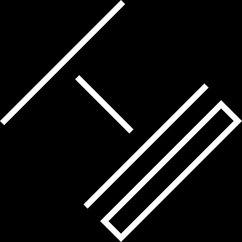 1-10 by Yujiro Fuji
1-10 by Yujiro Fuji
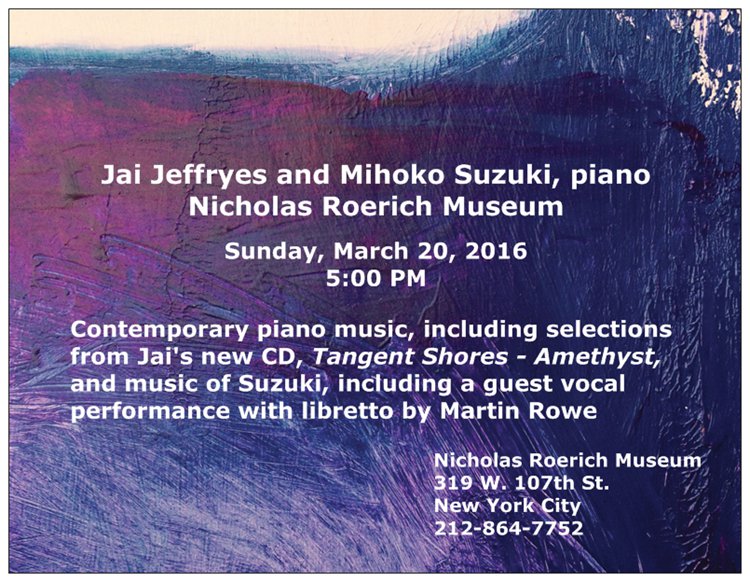
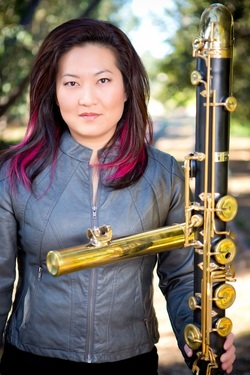
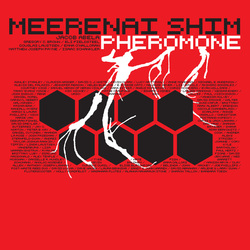
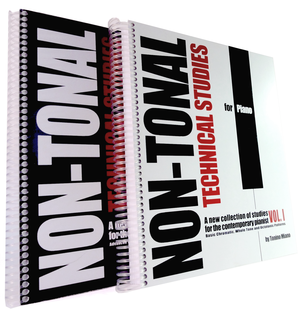
 RSS Feed
RSS Feed
